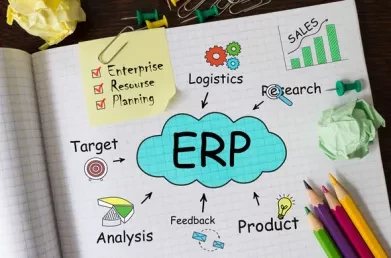In the world of ERP, small may be beautiful – but not simple
There is an old cliché that “small is beautiful”, the corollary being that small is also simple. In business the assumption is often made that smaller companies must by definition be simpler, but surprisingly the opposite is very often the case.
I recently managed an ERP selection project for a small company with functional requirements spanning process manufacturing, inventory and warehouse management, sales, finance, and several retail outlets with point of sale. Hardly simple! Another company I worked with had discrete manufacturing, inventory and warehouse management, a webstore, and a distribution facility in another country with a 3rd party logistics facility. Again, not necessarily very simple.
In the context of ERP projects, smaller companies face a plethora of problems larger companies are better placed to face.
There’s the cost of a new ERP solution for one thing. Big companies with deep pockets may spend millions on their ERP solutions, but smaller companies need to look after every single cent spent on their ERP projects and make sure it’s spent wisely.
Smaller companies are also more likely to be family companies. Both of the companies I referred to previously were. Owner-managers inevitably feel a great deal more personally involved when it comes to spending money on ERP projects as they’ve genuinely got “skin in the game”.
I think there is a hidden step up for smaller companies that they are not aware of. As I already mentioned these companies are often family run or run by a few partners. Generally they have managed to run the company on a shoestring during their early years. This is perfectly normal and sensible for business owners running a start-up. After all if they didn’t keep costs tight, they most likely wouldn’t be in business for very long. One of those costs they tend to keep on a leash are IT costs including ERP. They buy a low cost “accounts package”, use spreadsheets for everything else, and put up with the ever louder grumbles from their employees as the various systems creak at the seams.

At some point, though, the business takes off, the spreadsheets start to crumble, the employees’ grumbles become roars of discontent, and the owners hold up their hands and reluctantly agree that something must be done. There is a moment of relief as both the staff and owners have made their decision that life will improve when the new system comes along.
It’s at this point that ERP consultants are often engaged. The business seeks to figure out what exactly is required and how much it will cost, and the reality of what’s involved in an ERP project starts to become apparent. For one thing, they had gotten away with spending virtually nothing on their old systems – such as they were. Now they are talking multiples of what they have spent thus far to resolve all the issues. On top of that they are being told that the commitment from their team must be total. Or at least as total as life allows. After a severe intake of breath, when they are capable of cognitive thought and speech again, they inevitably ask something like “how can it cost so much, we’re just a small company?”
Interestingly, many small companies don’t necessarily recognise their own complexity. One company I worked with had operations in two sites in different countries. They implemented a basic ERP system, and made the assumption that the foreign location worked the same way and had the same business processes as the head office site. Why did they do that? Well because they were a small and simple business, of course. Only they weren’t. The implementation was a total failure, the system had to be discontinued and the staff in the foreign location resented the fact that they hadn’t been consulted as to just how different they were. Meanwhile the owners were left scratching their heads as to what went wrong and more money had to be spent fixing the situation.
Other complexities can arise for smaller businesses that larger companies are better prepared to cope with. The sheer time required from internal teams, for example. The level of testing required in a small, but still complex business, may not be much less than that for a much larger company – but they have far less people to do the work. This can make project planning more difficult, it can extend project timelines because of lack of resources leading to even more costs. Smaller companies may not have the internal expertise to manage projects themselves, thereby leading to the requirement to hire this expertise in, leading to even more costs. Of course, larger companies may also lack such expertise but they can bear these extra costs easier than smaller businesses.
In conclusion, smaller companies are not necessarily simpler than larger ones in terms of business processes. ERP implementations in smaller businesses are not necessarily easier to manage and, if approached in the wrong way, have the potential to be painful experiences for all involved. ERP implementations are still beneficial and definitely necessary for expanding businesses, but going in with your eyes open is better than getting a shock when it is too late.
This blog was written by David Quirke, Principal Consultant at Lumenia Consulting. If you would like further information on ERP please send an e-mail to David Quirke.


